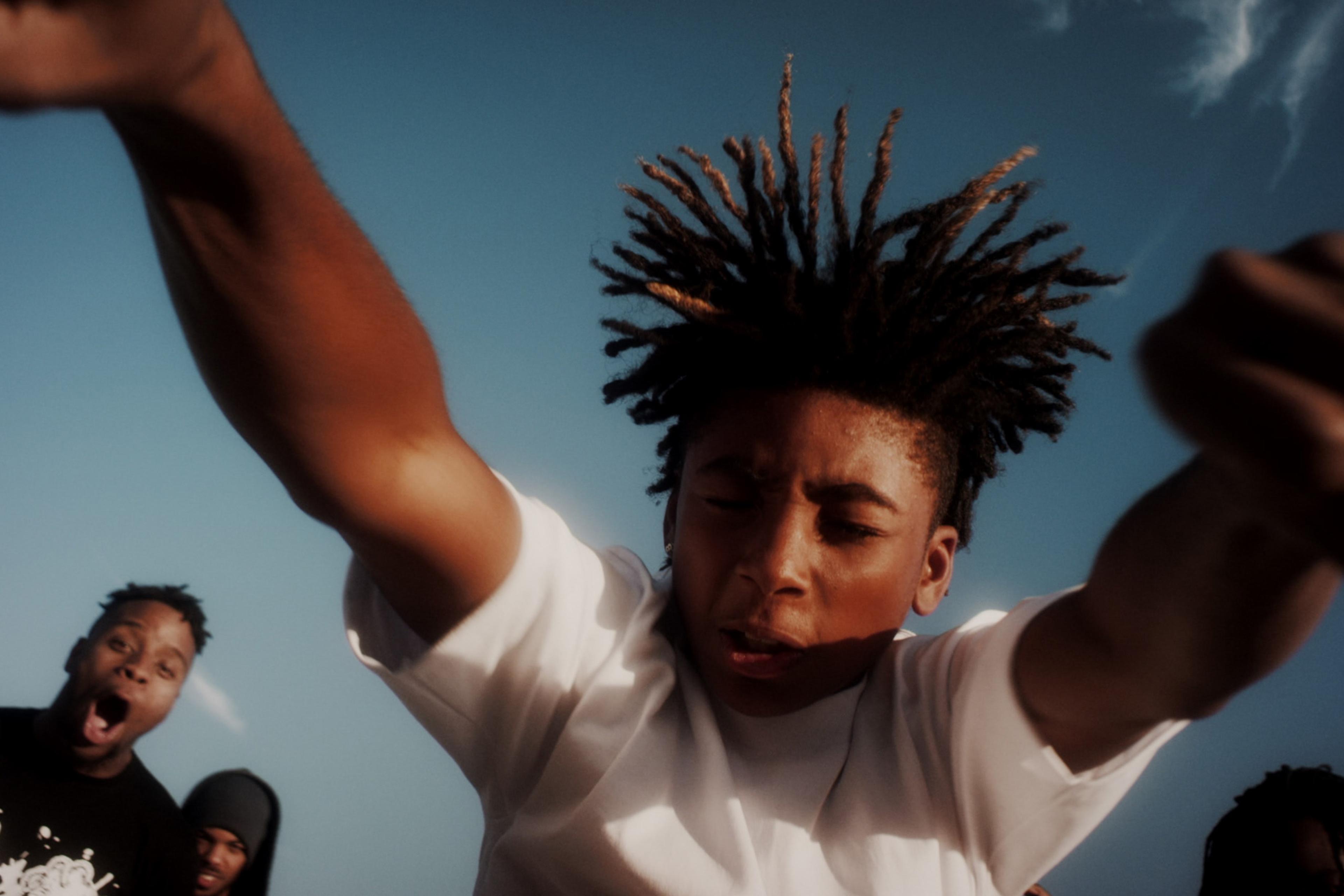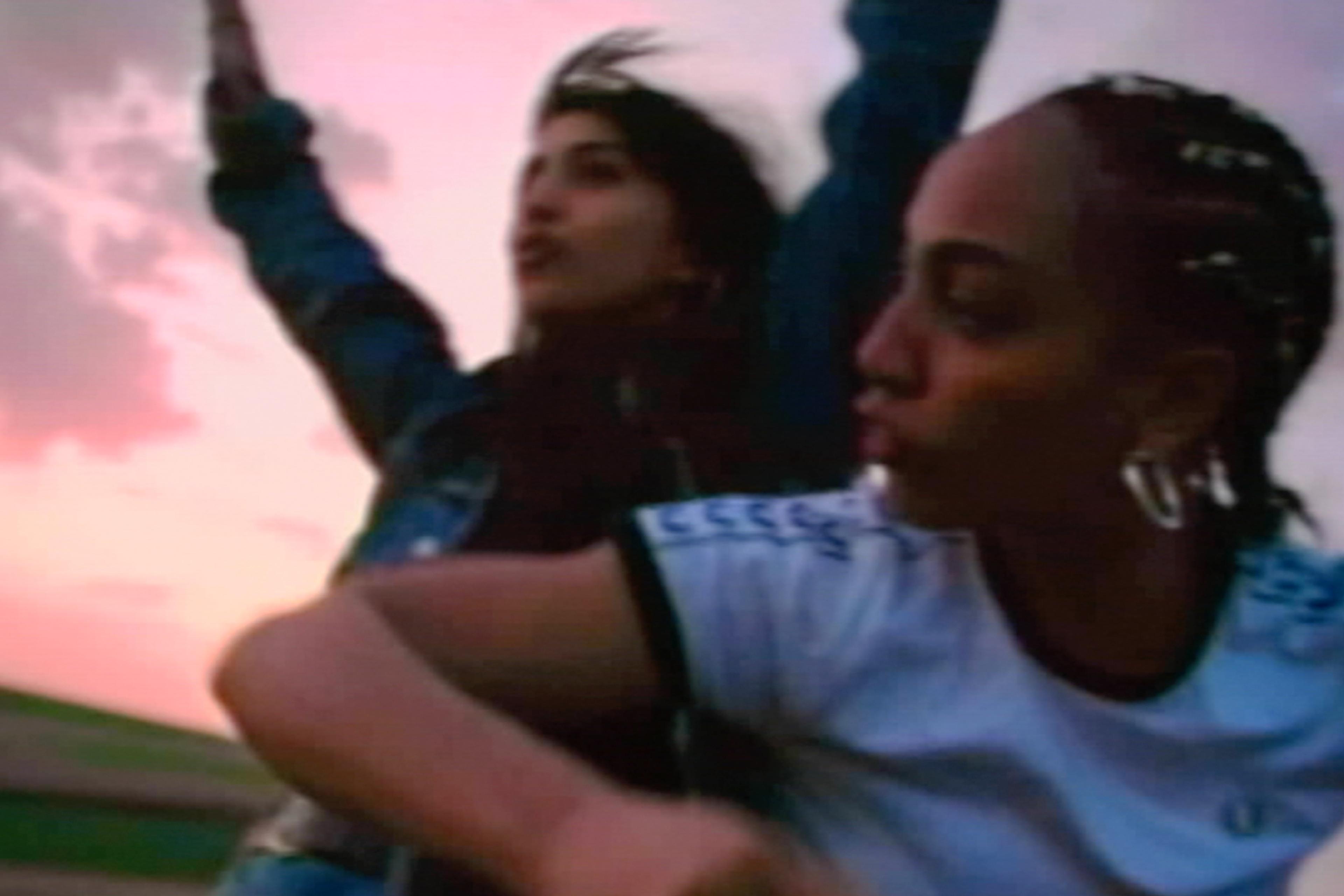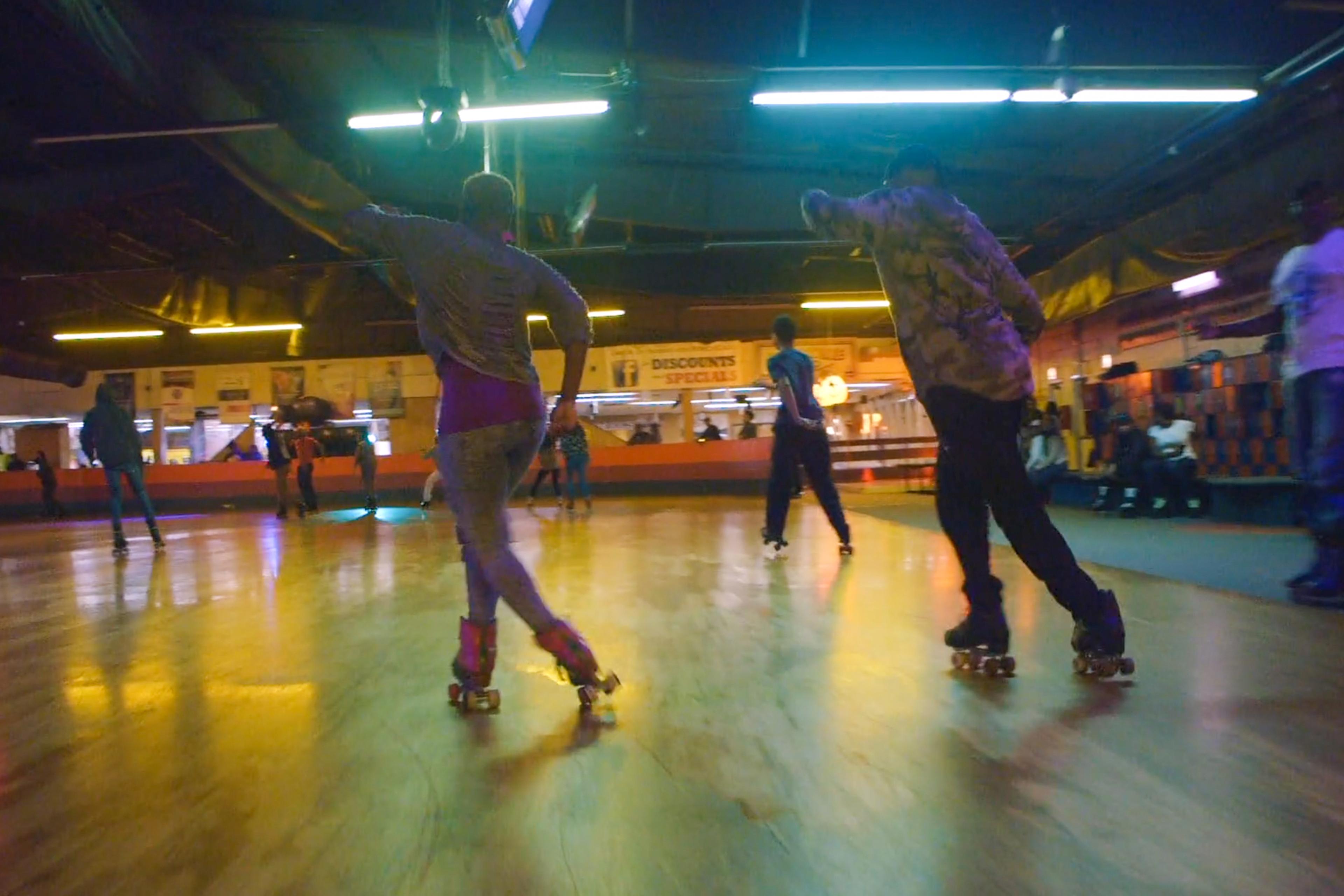In 1970, at the height of the Black Power movement, two teachers on Chicago’s South Side created the Black ABCs. The visual learning aid featured photos of Black children with captions like ‘A is for afro’ and ‘S is for soul sister’, designed so that students could recognise their culture and themselves in their language as they learned to read and write. The project eventually spread to classrooms across the country, and has recently been celebrated as a visionary project for empowering Black youth and celebrating Black culture via teaching materials, which, even in almost exclusively Black US schools, tended to feature predominantly white faces. A visual accompaniment to the New Jersey rapper Topaz Jones’s album Don’t Go Tellin’ Your Momma (2020), this eponymous short film updates and reinterprets the Black ABCs more than 50 years later.
Co-directed by Jason Sondock and Simon Davis of the New York-based directing duo Rubberband, the genre-defying work spans interviews with Black thinkers and activists; camcorder footage and still photos from Jones’s childhood in Montclair, New Jersey; archival film and television clips; and micro-short films and music videos. At ‘D is for drums’, Jones performs a verse from the Don’t Go Tellin’ Your Momma album-closer ‘Buggin’’, accompanied by a beat tapped out by the hands of a percussionist at a nearby table. At ‘G is for garden’, the audience meets the New York City-based urban farmworker and community organiser Frances Pérez-Rodríguez, who focuses on access to fresh and affordable food. At ‘H is for happy’, a brief vignette features Jones as a link in a chain of young Black people combing one another’s hair while sitting on a stoop. At ‘R is for rich’, Jones’s grandmother details the story of a family fortune lost in cotton crops generations ago. By rapidly opening and closing windows into these disparate yet connected scenes, the filmmakers build a portrait that fuses autobiography with a whirlwind survey of contemporary Black culture.
If that all sounds a bit overwhelming, it is. Often, as soon as the viewer settles into a scene, the filmmakers pull the rug out, forcing them to once again reorient. In the hands of a less talented team, such an ambitious project could easily lose momentum across 35 minutes, feeling something like a disjointed scroll through TikTok. But Jones and Rubberband treat each segment with care, never using the flip-book style as an excuse to ignore cinematography and style. An interview segment with pageant queen-turned-psychotherapist Kaity Rodriguez, for instance, is framed tightly around her face, lending the scene a sense of therapy-room intimacy as she discusses mental health in the Black community.
These artful flourishes, combined with the shot-on-film look and the backbeat of Jones’s retro soul-infused hip-hop, lend the eclectic work an aesthetic cohesion. So too, of course, do the film’s overarching themes of Black culture, ingenuity and perseverance, which weave, re-emerge and intersect in fascinating ways across its duration. For its wildly unconventional style and accomplished artistry, the film won the Short Film Jury Award for nonfiction at the 2021 Sundance Film Festival. Like the original Black ABCs, in time it may prove to be a meaningful time-capsule, and one that, in Jones’s words, could carry on the tradition of making others ‘feel seen in their own self-discovery for generations to come’.
Written by Adam D’Arpino







